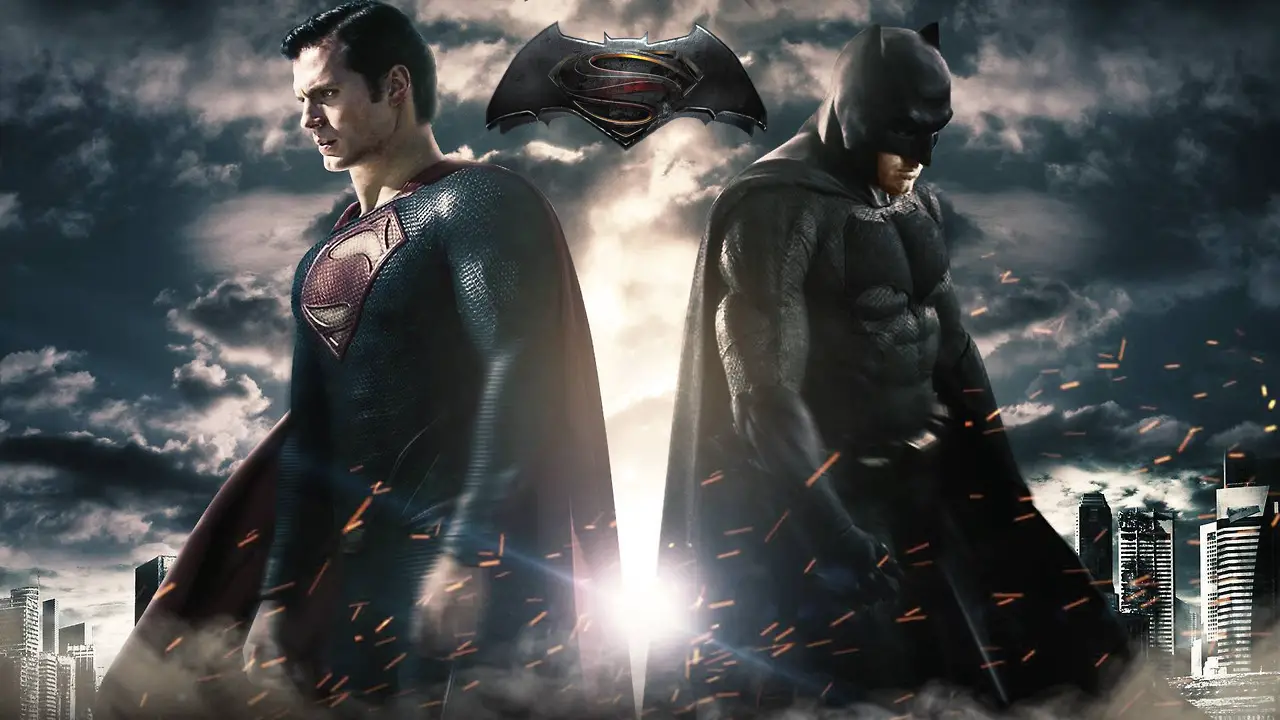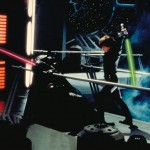When the trailer for “Batman vs. Superman: Dawn of Justice” first came out, my first thought was, “Oh god, I’m going to have to watch Batman’s parents die again.” I’d already seen six Spiderman movies, couldn’t a nerd catch a break? The answer is, apparently, no. No, a nerd can’t catch a break. Just like every comic issue that stars Jason Todd begins with those same three scenes of the little Robin spitting at the Joker, lying next to a bomb and then being cradled in a crying Batman’s arms, so every Batman movie must involve his tragic origin.
I’ll admit it, I groaned out loud when the movie began. The first scene, to my absolute horror, was the Wayne death scene. I silently asked what I had done to deserve this, to have to watch the Waynes die yet again. And yet, a couple minutes later I was completely engrossed in the film, and in fact, enjoyed it enough to write this review.
So what happened? How did I go from literally groaning to 100 percent endorsing and defending “Batman vs. Superman”? Strangely enough, it was the Waynes’ death scene. The thing that the critics who complain about “Batman vs. Superman” being too “dark and grim” ignore is that that’s the point of the film. “Batman vs. Superman” is clearly inspired by Frank Miller’s genre defining comic “The Dark Knight Returns,” a comic that takes place in a much darker Gotham than the one most fans are familiar with.
Despite the visual darkness though, the movie itself is quite a lot lighter than most critics give it credit for. In fact, it tells an incredibly compelling story of a man’s development from a violent cynic to a more “classic” superhero, while simultaneously addressing “realistic” criticisms of Superhero worlds, like the problem of collateral damage.
Batman Is the Uncontested Protagonist
I’ve mentioned that “Batman vs. Superman,” like the comic it emulates, is redefining the superhero movie genre. That means that in order to understand it, viewers and critics have to watch it for the movie it is, not the movie they expect it to be. So let’s take a look at the movie that was actually on the screen.
Despite being titled “Batman vs. Superman,” the movie’s title credits scene is about Bruce Wayne, specifically two incredibly formative moments of his childhood, his parents’ actual death and their funeral. Bruce Wayne not only voices over the scene, he also ends with the comment “in the dream [the bats] took me to the light, a beautiful lie,” effectively setting up his character arc for the movie.
All iterations of Bruce Wayne are affected by Martha and Thomas’ deaths, but this sequence shows that Affleck’s Bruce Wayne comes out of the experience with the understanding that the world is a terrible place. Metropolis, and Superman, by extension, is nothing but a beautiful lie. This Batman is cynical, cynical enough to believe that a man like Superman can’t possibly exist in his dark and terrible world. Anyone with that much power has to have a motive.
Which is, interestingly, exactly the same thing that Lex Luthor says.
Lex Luthor as a Foil for Bruce Wayne
Personally, I love Jessie Eisenberg’s Lex. Sure, he’s nothing like the stoic and composed Superman villain in the comics, but he provides most of the comedy and a lot of the thematic commentary within the movie. Sometimes his dialogue is incredibly in-character and informs the audience of his plans, but more often his dialogue is as grandiose as the central conflict of the movie.
When he says, “Do you know what the oldest lie in America is, Senator? It’s that power can be innocent,” he reminds the viewer that this is Bruce Wayne’s stance on the world. Superman is not an inherent evil because absolute power corrupts absolutely, at least, we don’t see that on screen, but he is a terrifying unknown, a being who, if he should turn, would be unstoppable.
Save of course, for the intervention of Lex, and, strangely enough, Batman.
But, for there to be foils, there has to be differences between the characters, and it’s these differences that cause me to defend Batman as more than just another gritty antihero. Unlike Lex Luthor, Bruce Wayne is able to eventually realize that Superman actually has no intention of hurting anyone, and his initial distrust, while not foolish, was unfounded. Lex, by contrast, falls deeper into the rabbit hole to the point where he decides to summon a “Devil” to deal with this supposedly corrupt “God.”
That Makes Superman the Antagonist
So if Bruce Wayne is the gritty, tortured protagonist, that means that Superman, as the one who opposes him, must be the antagonist. An antagonistic Superman makes a lot of sense given the violent ending of “Man of Steel” and the not-so-subtle references to the popular DC Comic featuring an evil dictator Superman, “Injustice.” But keeping all that in mind, the movie is very clear that while Batman and Superman are diametrically opposed, Superman is not a villain.
The imagery that surrounds Superman is messianic at its most extreme and venerating at the other end of the spectrum. He is literally given a monument reminiscent of the Vietnam Veterans’ Memorial and a funeral onscreen.
Snyder then, makes it incredibly clear that while we as an audience may understand and even empathize with Bruce Wayne’s concerns, they are, in the end, unfounded. Superman is not a threat.
However, his existence does threaten Bruce’s black and white worldview. We see in the first scene set in Metropolis that he doesn’t trust Superman because he believes the man has no awareness of the collateral damage he causes in his crusade, an ironic point of view coming from the man who literally brands criminals, but we also get a chance to watch as Superman’s actions, and more importantly, the reactions of the women in his life, slowly chip away at that worldview.
The reason that I can call “Batman vs. Superman” an engaging movie is because it ends with the implication of The Justice League. The Bruce Wayne that begins the movie is more likely to have killed or jailed the meta-humans he ultimately ends up working with.
It is only through his fight, and subsequent partnership with Superman that Bruce Wayne is able to begin to accept that not every god is evil and in fact, he is stronger with support. If “Batman vs. Superman” were truly as gritty and dour as reviewers claim, it would be impossible for the franchise to continue with the relatively light hearted “Justice League” Movie.












[…] three performances as Batman already wrapped up, including his first outing in “Batman v Superman,” an uncredited appearance in “Suicide Squad” and the superhero team effort in “Justice […]